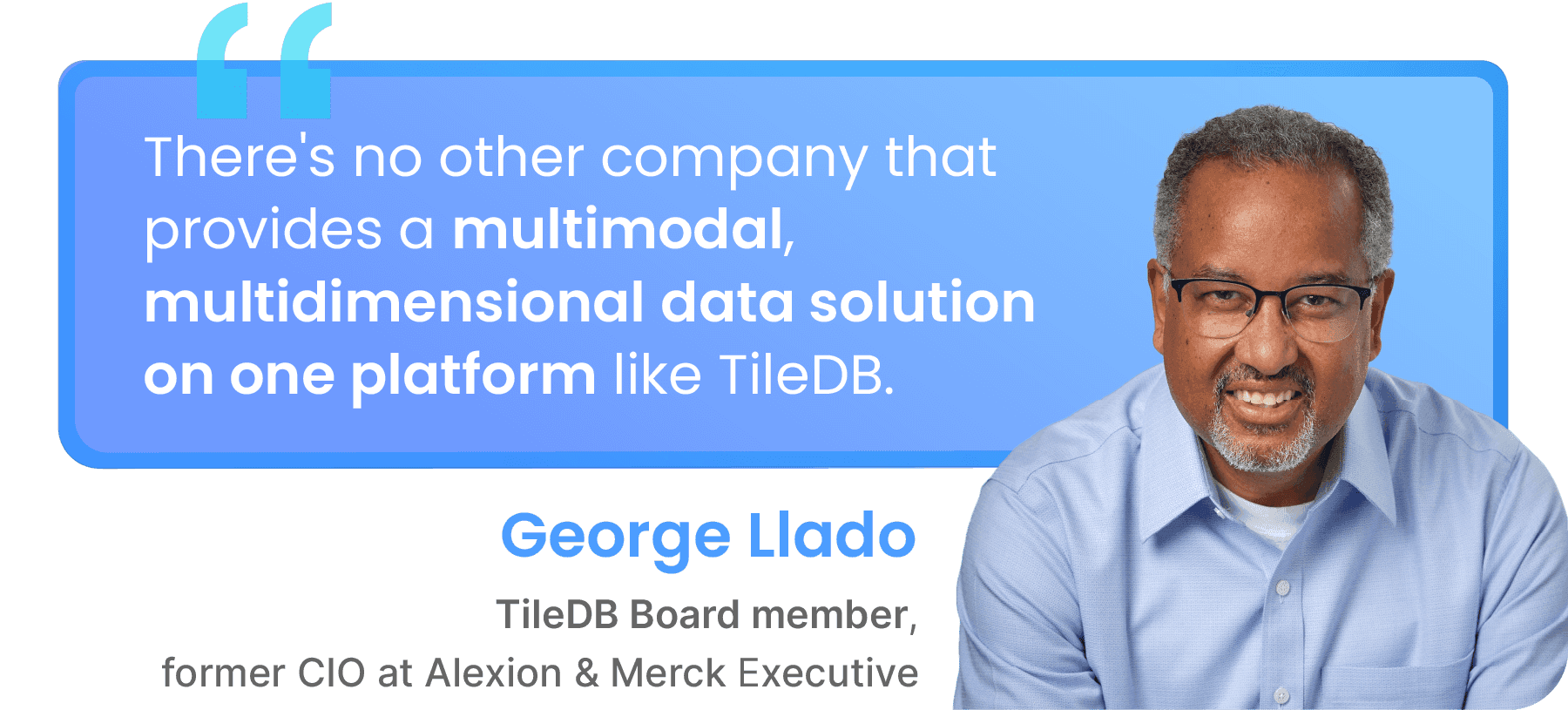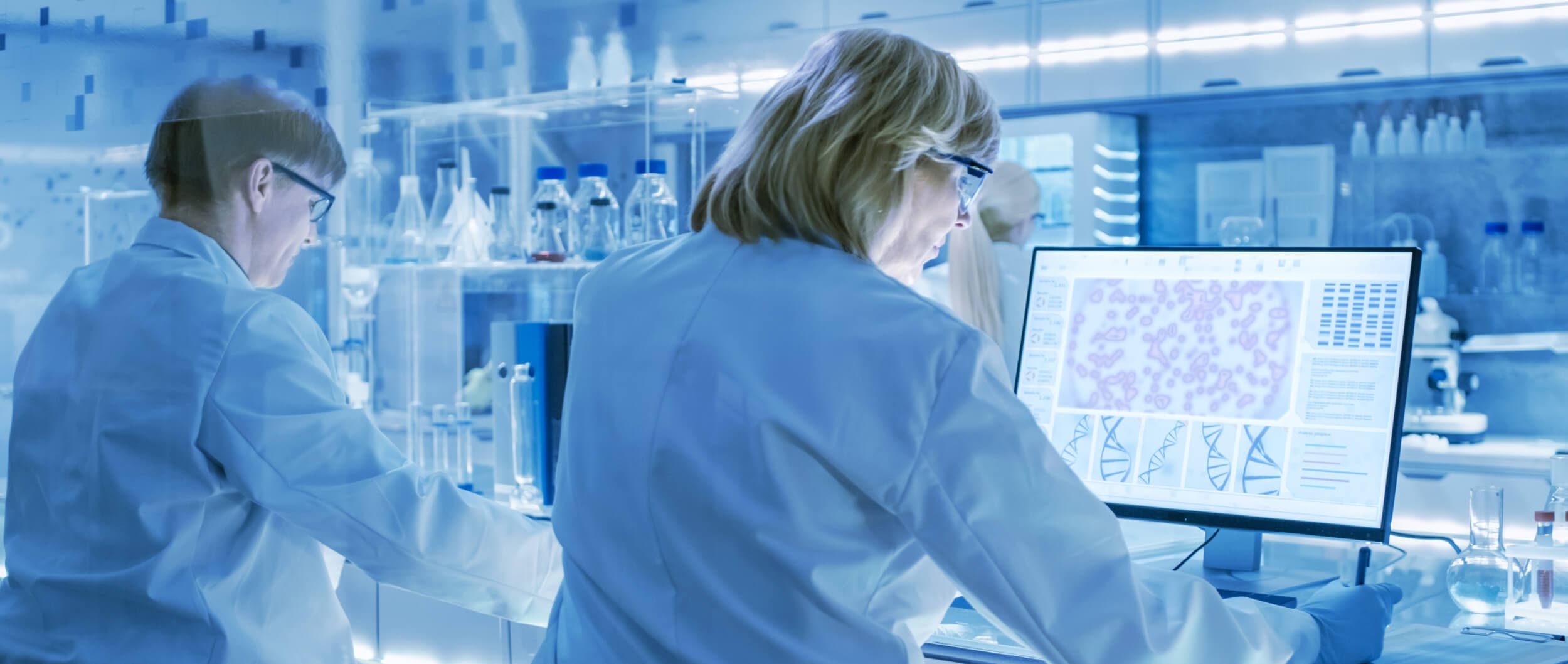This fall, we’ve been fortunate to have a new member join the TileDB board: George Llado, the former Senior Vice President and Chief Information Officer of Alexion Pharmaceuticals, Inc., a subsidiary of AstraZeneca.
George has more than 30 years of information technology and cybersecurity experience in the biopharmaceutical industry. As the Chief Information Officer (CIO) of Alexion Pharmaceuticals, he was responsible for leading the company’s Global Information Technology organization by developing and implementing innovative technology and enabling data-driven insights across Alexion’s Research & Development, Commercial, Manufacturing Operations, and Supply Chain functions.
Prior to joining Alexion in 2015, George held IT leadership positions at Merck for 25 years. He served as Vice President, Manufacturing and Supply Chain Information Technology and business-line CIO, for which he led the planning and development of IT solutions for Merck’s Manufacturing division. He also held roles as Merck’s Vice President, Corporate Information Technology and business-line CIO for its Global Commercial Organization and various corporate functions.
We got together with him for a quick coffee chat to learn more about the industry and why he is excited about TileDB.
Q: Thank you for joining us today, George. To start, could you share a bit about your background?
A: I've spent my entire career in tech and healthcare, beginning full-time in 1988 or '89 with Merck, a large pharmaceutical company in New Jersey, right out of college. I stayed with Merck for nearly 26 years, leaving at the very end of 2014, then joined a company called Alexion. At that time, Alexion was a small, ultra-rare disease company with around 1,500 employees and $1.8 billion in revenue. I became the CIO there, stayed for close to eight years, and saw the company grow to about $7 billion and 4,000 people.
In 2021, AstraZeneca acquired Alexion, which was a perfect moment for me to retire and do what I've always wanted to—spend time with my young grandchildren, be with my mom whose health was declining, and travel with my wife. Now, instead of balancing work and family, my life revolves around family. I still do some board work and consulting, but it's all scheduled around my personal life, which feels incredible.
Q: Now, fast-forward to TileDB, where you are a board member. What interests you the most about working with TileDB?
A: TileDB is about to become a key industry market leader. As a former CIO in a scientific organization, I greatly value a company like this, and am excited to help guide them to the next stage of growth. My primary reason for joining TileDB’s board was their innovative way of ingesting multimodal data for immediate analysis, unlike competitive solutions where you are forced to bundle bespoke technology to cobble a custom solution to interpret your complex data. There's no other company that provides a multimodal, multidimensional data solution on one platform like TileDB.
Q: How is TileDB’s discovery platform of value to pharma and biotech?
A: TileDB's appeal as a unified data management platform that can handle all data types from day one is a huge breakthrough. For larger pharma companies, it’s about solving the issue of complex, fragmented data to get faster discovery. With TileDB, they could cut down from weeks to hours to get answers, enabling more timely insights and ultimately faster results. For the 500 to 700 biotech startups that launch yearly, many need a platform like TileDB from the outset as their go-to data solution for efficient data management.
Q: Where do you see the industry going in 2025 and beyond?
A: For me, it’s not about where the industry is going but how we double down on the unreachable things, now accessible by technology, specifically multimodal data - that never existed before.
Q: How does TileDB's capability to handle multimodal data fit into this future?
A: AI and ML will continue to rise to the forefront. These technologies will continue to revolutionize the next level of sophisticated data analytics and provide insight into drug discovery, trial input, and outcomes. Moreover, the future is personalized medicine and patient care.
By utilizing real-world data, TileDB fits squarely into these priorities for the pharma industry because it provides:
Rapid data ingestion capability of complex, federated data / specifically for single-cell and genomic data
Data privacy and security “in a box” for pharma’s most important data.
Answers to the most complicated questions in drug discovery, development, manufacturing scale-up, and commercial manufacturing.
Single end-to-end view of customer structured/unstructured data.
I am excited about TileDB’s future in helping to build the next generation of pharmaceutical success.

Meet the authors

